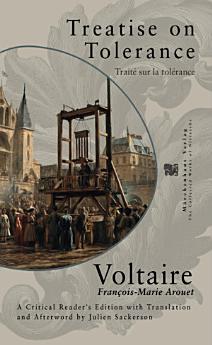Treatise on Tolerance
About this ebook
This modern Critical Reader’s Edition includes an illuminating afterword tracing Voltaire’s intellectual relationships with Enlightenment thinkers and philosophers (including Locke, Diderot, Rousseau and Newton), containing unique research into his influences and economic attachments, a comprehensive timeline of his life and works, a glossary of Enlightenment terminology, and a detailed index of all of Voltaire’s writings. This unique professional translation renders Voltaire’s sharp, satirical prose into modern language to preserve the original clarity and movement of the text. Combined with the scholarly amplifying material, this edition is a groundbreaking exploration of Voltaire’s classic works and his enduring artistic and philosophical influence, and influence on modern Protestant-Atheistic Theology.
Voltaire finished the Treatise on Tolerance by early 1763, and it was printed that April by the Cramer brothers in Geneva. He chose Geneva (then a semi-independent republic with more press freedom) deliberately, to bypass French censorship. A planned first run (reportedly three thousand copies) was sent to influential correspondents — including Madame de Pompadour, ministers of Louis XV, Frederick the Great and others — before public distribution began in October 1763. Within months, however, French authorities banned the book, fearful of its seditious implications. Despite official suppression, Treatise on Tolerance spread widely and soon became a bestseller across Europe. Its publication also had direct consequences: the campaign it fueled (along with Voltaire’s legal petitions) contributed to a retrial in 1765 in which Calas was posthumously exonerated and his family compensated. Thus, the Treatise is intimately bound to its historical moment – the counter-Enlightenment violence of mid-18th-century France – and it represents one of Voltaire’s most concrete interventions in an actual social injustice.







